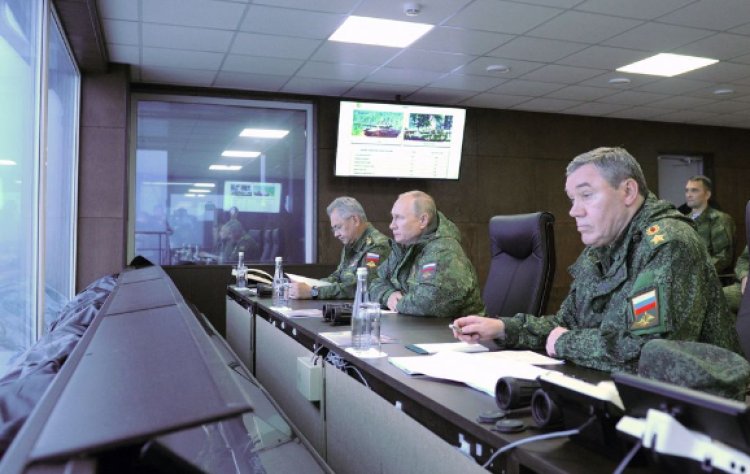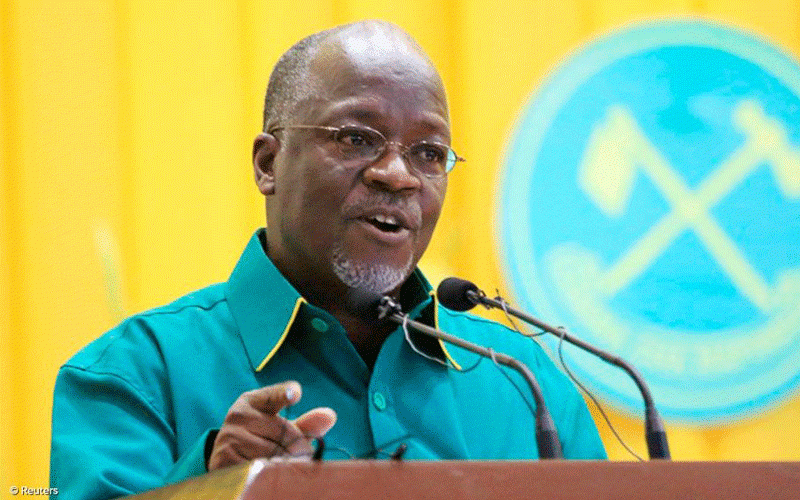Russia Drafts 300,000 Reservists to Join Ukraine Conflict
On Wednesday 21st, Russian President Vladimir Putin stated that up to 300,000 veterans of the Russian military would be called back to active duty. The Russian Army has sustained terrible losses in Ukraine, therefore the mobilization is meant to bolster its numbers. Despite having been done with the goal of increasing the army's fighting strength, the action can wind up making things worse.

Putin's announcement, which was delayed for 24 hours, repeated old grudges, primarily directed at the West and Ukraine. Putin characterized Ukrainians as "Neo-Nazis" and "puppets of Western administrations," calling them. About the shelling of the Zaporizhzhia Nuclear Power Station, he spoke of "endless threats" against Russia, including what he called "nuclear blackmail," and even claimed that certain Western officials were considering using nuclear weapons against Russia.
In his explanation, Putin claimed that Western nations, whom he accused of committing genocide, have as their objective the destruction of Russia.
Explaining why mobilization was required was a much more difficult task. Putin made no direct reference to Russia's heavy casualties, instead declaring that Russia was now fighting "the entire military machine of the collective West." (The Russian President made no distinction between Western military aid and Western military forces, which have yet to appear on the Ukrainian battlefield.) Putin described an "over 1,000-kilometer-long front line," implying that this was part of the reason for the mobilization

PHOTO FILE
Putin explained that the mobilization is necessary "to defend our Motherland and its sovereignty and territorial integrity, as well as to ensure the safety of our people and people in liberated territories." Only military reservists, primarily those who have served in the armed forces and have specific military occupational specialties and corresponding experience, will be called up.
Putin refused to take credit for the mobilization, instead saying, "I believe it is necessary to support the proposal of the Defense Ministry and the General Staff." He also did not specify how many veterans would be called up, though Defense Minister Sergei Shoigu later elaborated, saying up to 300,000 would be called up. Shoigu also stated on Russian television that the war had killed 5,937 Russians.
The comments made by Putin and Shoigu are a jumble of inconsistencies that cast doubt on the legitimacy of the leadership. Putin referred to the 1,000-kilometer-long battlefront as a justification for the call-up, even though the front line has gotten shorter since Russia abandoned the unsuccessful drive on Kyiv. Shoigu claimed that just roughly 6,000 Russians had perished, which would suggest that another 12,000 or more soldiers had been hurt during the combat, according to prevailing knowledge. Why then does the Russian military require 300,000 veterans?
In truth, it's thought that thousands of Russian soldiers died in the conflict in Ukraine. The CIA director estimated in July that Russia had suffered 15,000 combat fatalities and 45,000 wounds. According to the General Staff of Ukraine, Russia has suffered a total of 55,110 combat fatalities, translating to an additional 100,000 combat injuries. Ukraine's estimate may be exaggerated, but those are the kinds of casualties that would necessitate the call-up of 300,000 reserve personnel.
 Russian abandoned tanker as they fled Ukraine Counter-Offense PHOTO FILE
Russian abandoned tanker as they fled Ukraine Counter-Offense PHOTO FILE
Russia is unlikely to send its citizens to Ukraine to form new combat units. Instead, Russia will most likely use them to supplement the already depleted ranks of units fighting in Ukraine, sprinkling them among units that have suffered heavy losses. This is less than ideal because morale is low and the supply situation among Russian units is dire as a result of HIMARS and other Ukrainian artillery destroying supply depots. Russia is already struggling to feed and equip its troops on the front lines, and simply adding more troops to the logistical burden will exacerbate Russia's supply situation.
Putin's decision is already backfiring. Flights out of Russia quickly sold out after the mobilization was announced, and airlines were instructed not to sell tickets to Russian men between the ages of 18 and 65, according to a Russian report. Protests have already erupted in Russian cities, though it is unclear whether the protest movement will spread.
While the mobilization will almost certainly increase Russian casualties, it may also have a perilous logic. According to military experts, injecting reservists into Ukraine "may allow the Russians to hang on until the winter, when Putin hopes that high energy prices and cold houses will induce the Europeans to push for a 'cease-fire' in place, leaving the Russians in control of whatever territory they still control."
Russia's war in Ukraine has up to 80 percent public support. Putin's mobilization, which will reach into Russian families and remove veterans who have already served in the military, will put that level of support to the test. At the same time, there is no system in place to effectively utilize these veterans. Russian reservists are most likely to serve as cannon fodder.
Instead of assisting in the victory, the mobilization could be another of Putin's decisions, like starting the war, that backfired spectacularly.

 Steve Mburu
Steve Mburu 
























